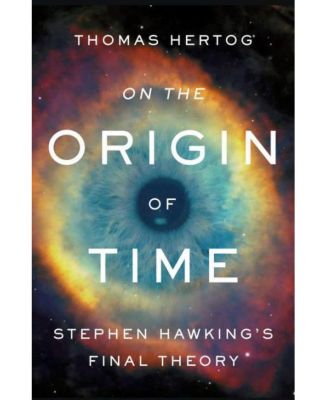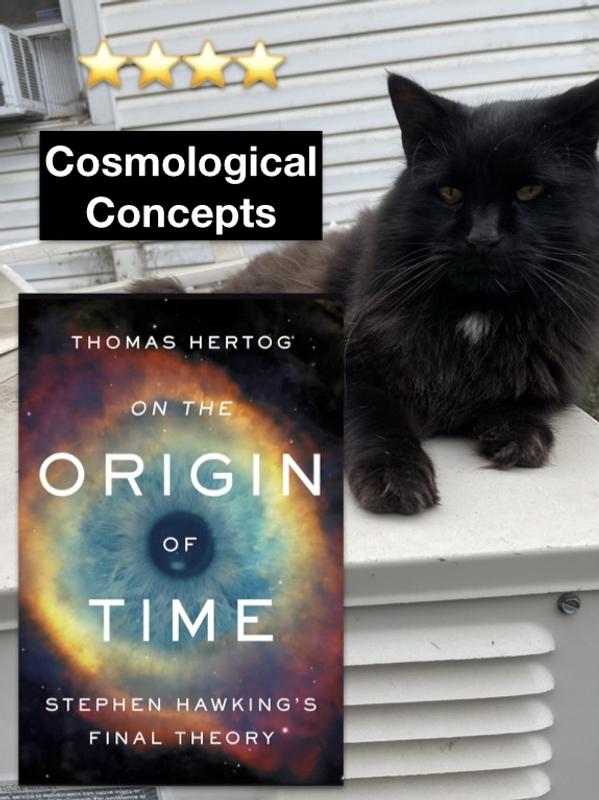On The Origin of Time- Stephen Hawking's Final Theory by Thomas Hertog
Product details
Web ID: 16319797Cosmological Concepts
I once used to want to be a scientist. As a child I would read articles in magazines like Popular Science, National Geographic, and Scientific American because the universe we live in is so interesting. Occasionally I revisit those days by reading something to stimulate my sense of wonder. Hertog gives a history of physics and its advances since its discovery. The book is really about Stephen Hawking’s work on the origins of the universe and the author’s part in that work. A considerable part of the book describes the discoveries that Hawking built upon in his studies. I rate this book four stars. If you are interested in physics from a lay standpoint, this book will elevate your knowledge. My thanks to Bantam via Netgalley. All opinions are mine and given freely. #physics #cosmology #stephenhawking #grandunifiedtheory #thefingerofgod #kindlesallthewaydown
Recommends this product
Customer review from barnesandnoble.com
Interesting
How did the Big Bang create conditions suitable for life? This book proposes that the laws of physics aren't fixed, but rather evolve along with the early universe itself. Written for a non-technical audience, it's dense but accessible. Thanks, NetGalley, for the ARC I received. This is my honest and voluntary review.
Recommends this product
Customer review from barnesandnoble.com
Inside Hawkings’ Mind
What if you could get inside Stephen Hawkings’ mind after he had written a Brief History of Time. What if you could get a sense of all the theories, the struggles, the incredible speculation that came as big data became a thing. Thomas Hertog started out as Stephen Hawkins’s graduate student, and became his closest friend and collaborator. He gives us a peek into the man and the scientist he knew. This book is much more than that also. Hertog is skilled at drawing in the history of physics, even from ancient times. An example: it was interesting to me, as one who has lived through a “plague” (the coronavirus pandemic), that Newton wrote most of his Principia while in isolation from a 17th century plague in England. In fact, he draws not just from the history of physics but from biology and human history in general, with examples. This made the book so much more interesting to me, reminiscent of Hawking’s own book, which I think was one of if not the first book on physics for the reading non-scientific public. Indeed, the genius of this book is that I, a non-scientist, can read and enjoy it. I think Hertog has accomplished a remarkable feat with On the Origin of Time. The parallel accomplishment is that he humanizes physics with stories of encounters between scientists, in the university setting, in conferences, and in other everyday circumstances. (DAMTP, the acronym used through Hertog’s book, is the Department of Applied Mathematics and Theoretical Physics at Cambridge University.)
Recommends this product
Customer review from barnesandnoble.com


